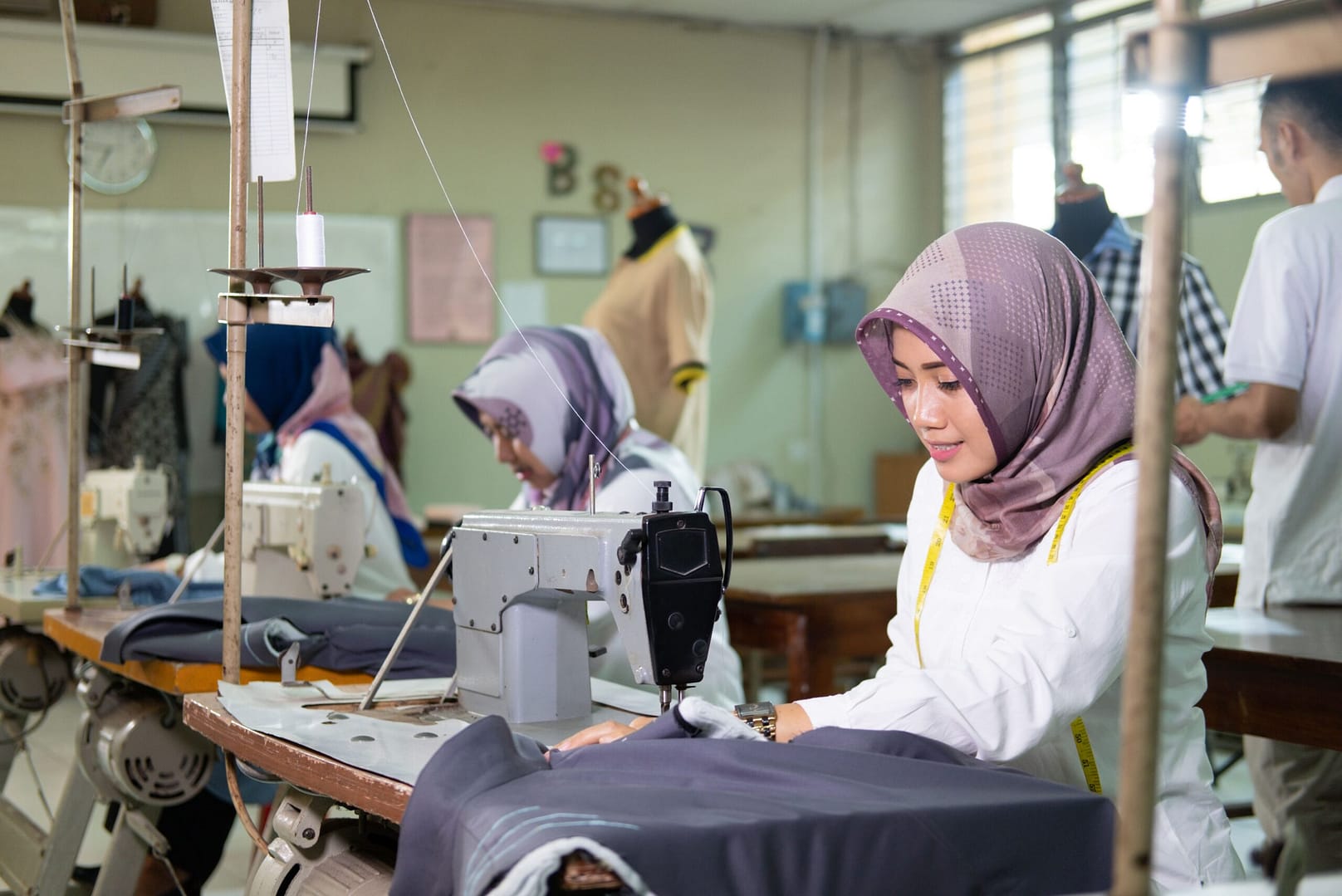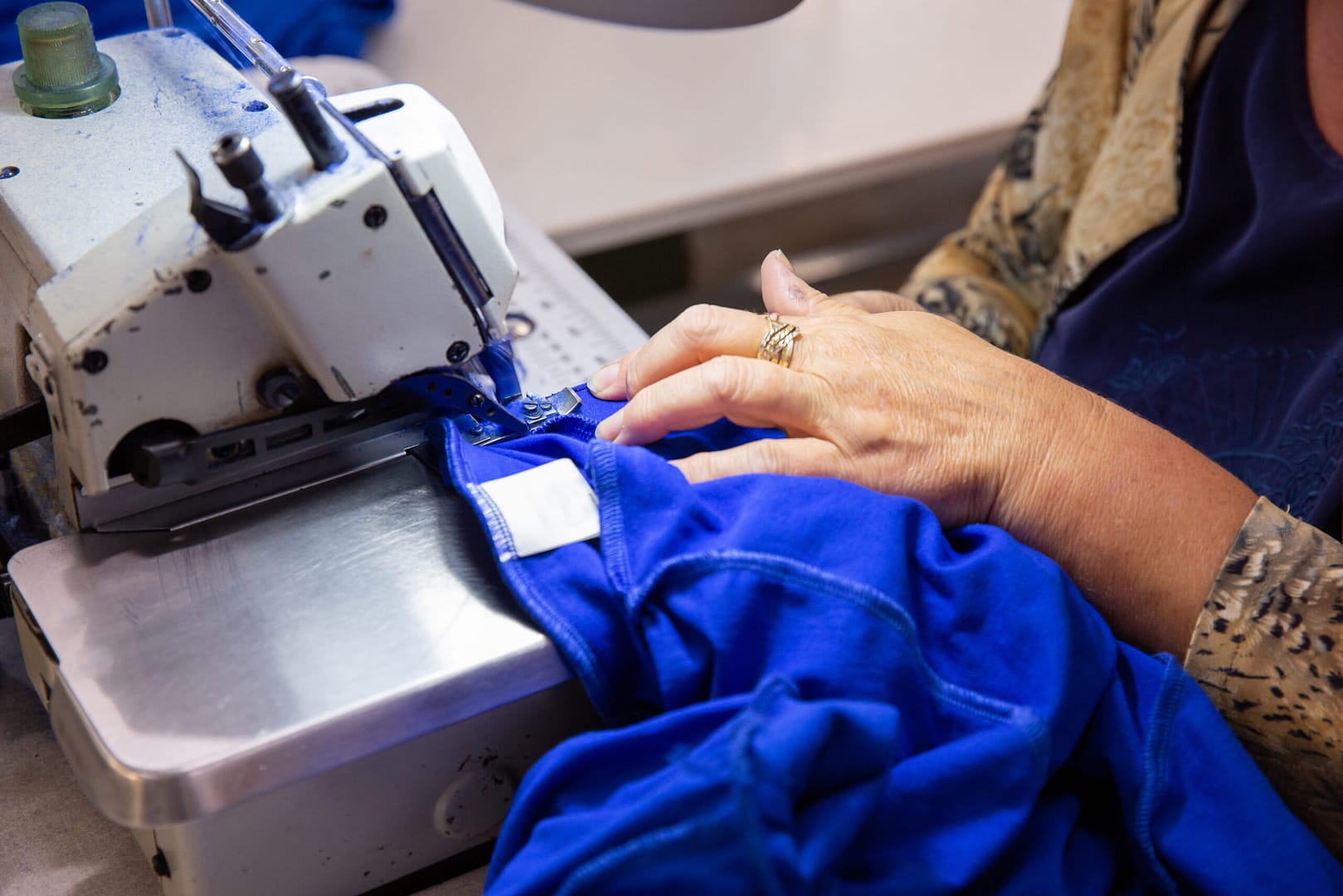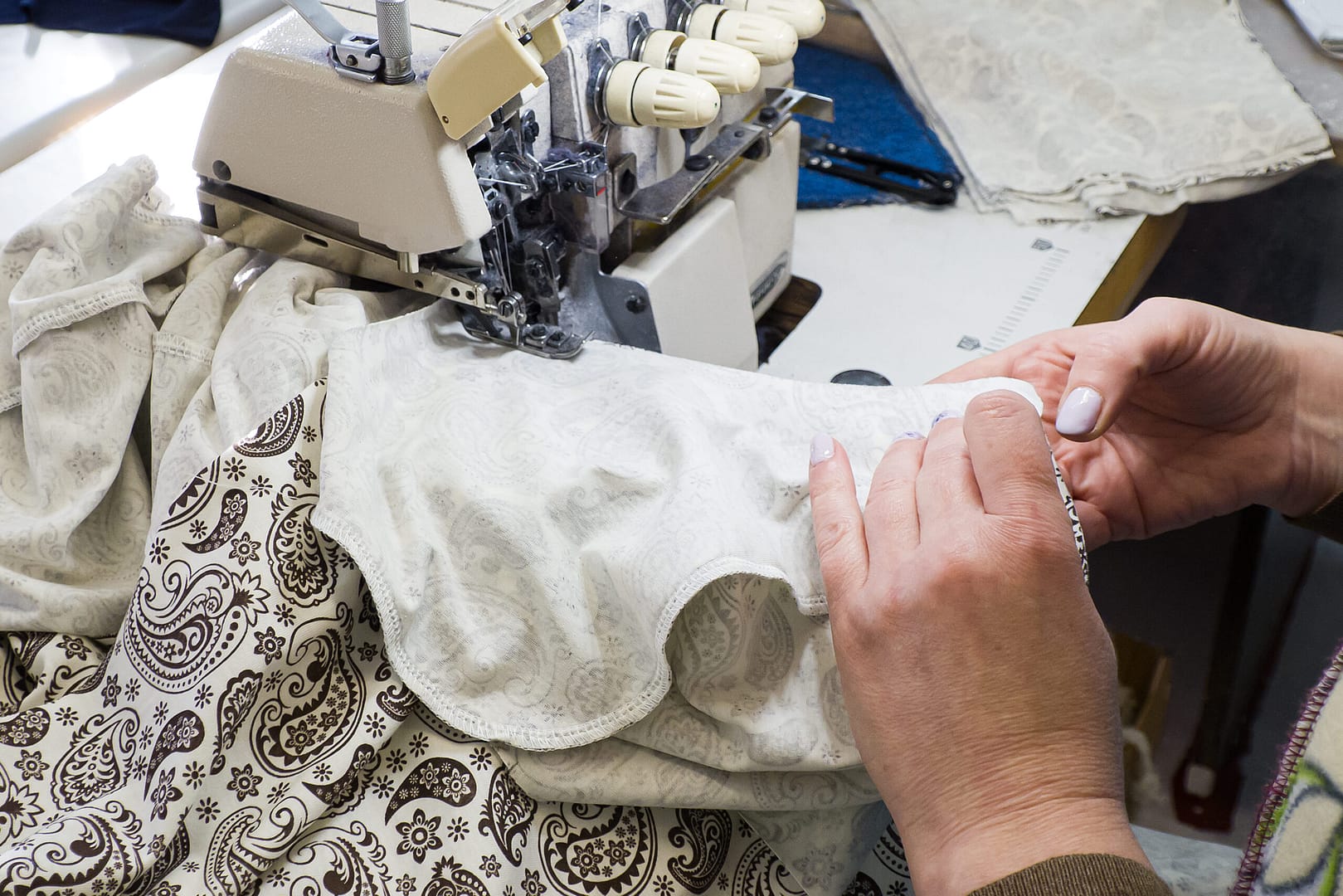| Fabric Name | Sorona |
| Fabric also known as | Triexta, Sorona polymer |
| Fabric Composition | Made from 37% plant-based materials derived from corn glucose and 63% synthetic materials |
| Fabric Breathability | Moderate |
| Moisture-wicking Abilities | High |
| Heat Retention Abilities | Moderate |
| Stretchability (Give) | High, due to intrinsic stretchability of the fiber |
| Prone to Pilling/Bubbling | Low, especially in high-quality blends |
| Country Where Fabric Was First Produced | United States, developed by DuPont |
| Biggest Exporting/Producing Country Today | United States, China |
| Recommended Washing Temperatures | Moderate to low |
| Commonly Used In | Activewear, casual wear, upholstery, and other apparel due to its versatility and performance attributes |
What is Sorona Fabric?
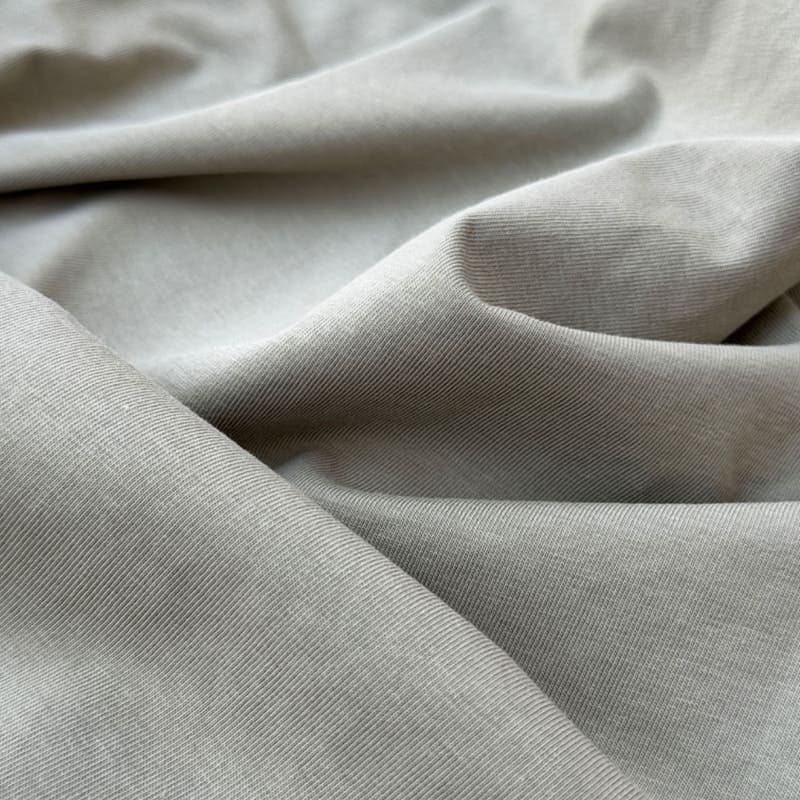
Sorona fabric is an innovative form of polyester developed by DuPont, combining the best features of both natural and synthetic fibers. This biopolymer is made from 37% renewable plant-based ingredients, primarily corn glucose, making it a more sustainable option compared to traditional petroleum-based synthetics.
Sorona fibers offer a unique blend of properties, including the softness of nylon, the bulkiness of acrylic, and the stain resistance of polyester. Additionally, Sorona boasts inherent elasticity, providing excellent stretch and recovery, making it ideal for a wide range of apparel.
Comparison with Synthetic Fibers:
- Eco-Impact: Unlike its synthetic counterparts that rely heavily on oil, Sorona’s plant-based content significantly lowers its environmental footprint.
- Performance: Sorona fibers are inherently stain-resistant, highly durable, and retain their shape well, competing closely with, or even surpassing, traditional synthetic fibers in terms of performance.
Comparison with Natural Fibers:
- Durability: Sorona excels in durability and resilience, offering a longer lifespan than many natural fibers like cotton or wool.
- Care and Maintenance: Sorona garments are easier to care for, requiring less water and energy in washing and drying compared to natural fabrics.
The attributes of Sorona make it an ideal choice for modern apparel, where consumers seek products that are not only stylish and comfortable but also made responsibly and sustainably.
How is Sorona Fabric Made?
The manufacturing process of Sorona fabric utilizes cutting-edge biotechnology to convert natural glucose derived from renewable plant sources into a high-performance polymer. Here’s a closer look at how Sorona fabric is created:
- Sourcing the Raw Material: The journey of Sorona begins with the harvesting of corn, a renewable resource. The corn is processed to extract glucose, which serves as the foundational building block for producing Sorona.
- Fermentation: The extracted glucose undergoes a fermentation process similar to that used in the production of biofuels. During fermentation, microorganisms convert glucose into Bio-PDO™ (1,3-propanediol), the primary ingredient for Sorona polymer.
- Polymerization: The Bio-PDO™ is then chemically combined with terephthalic acid to create the Sorona polymer. This step is crucial as it determines the unique properties of the fiber, such as its elasticity, strength, and softness.
- Extrusion and Spinning: Once the Sorona polymer is formed, it is melted and extruded through a spinneret to form fine strands of fiber. These fibers are then cooled and stretched, aligning the polymer chains to enhance the fiber’s strength and flexibility.
- Texturing and Finishing: The fibers undergo texturing processes to add bulk and texture, mimicking the feel of natural fibers. Finally, the fibers are treated with various finishes to enhance their properties, such as water repellency or fire resistance, depending on their intended use.
Environmental Benefits:
- Reduced Greenhouse Gas Emissions: The production of Sorona requires 30-40% less energy and releases 56-63% fewer greenhouse gas emissions compared to the production of nylon 6.
- Less Dependency on Non-Renewable Resources: By using glucose from plants, Sorona reduces our dependency on oil and other non-renewable resources, leading to a more sustainable manufacturing cycle.
The innovative production process of Sorona not only highlights its environmental advantages but also sets a new standard for the integration of performance and sustainability in textile manufacturing. This makes Sorona a highly attractive option for brands looking to minimize their ecological footprint while delivering high-quality, durable apparel to their customers.
Advantages of Using Sorona Fabric in Apparel
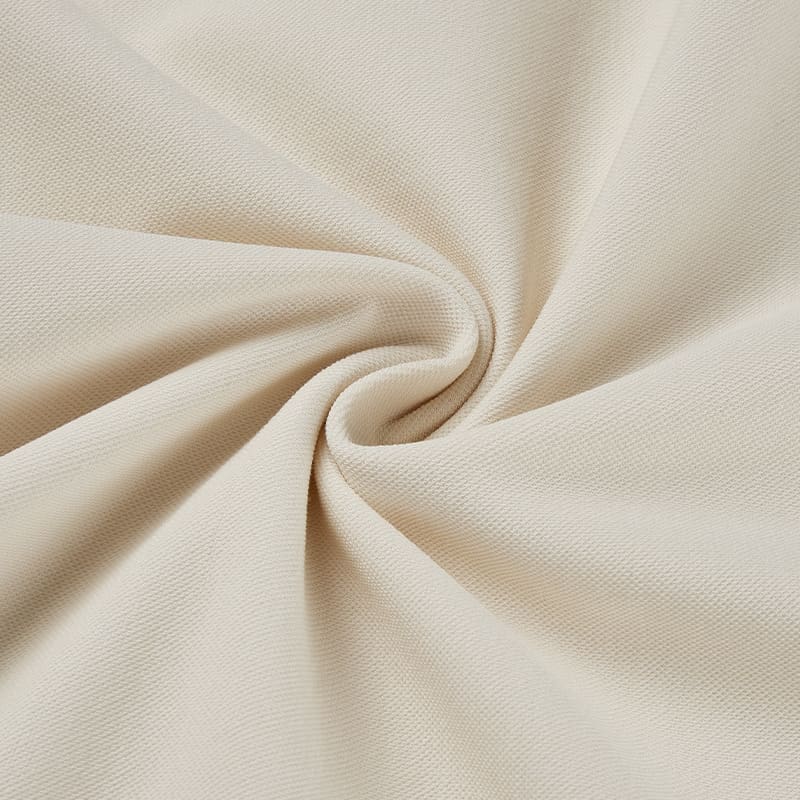
Sorona fabric offers a compelling array of benefits that make it an ideal choice for modern apparel manufacturers and brands. Here’s a detailed look at why Sorona stands out in the textile industry:
Sustainability
- Lower Environmental Impact: Sorona’s production process significantly reduces greenhouse gas emissions and energy consumption compared to traditional synthetic fibers. Its plant-based origin and lower reliance on fossil fuels contribute to a reduced carbon footprint.
- Biodegradability: Unlike many synthetic fibers, Sorona is partially biodegradable, which means it offers a more sustainable end-of-life scenario than entirely petroleum-based products.
Performance
- Durability and Resilience: Garments made from Sorona are known for their exceptional durability. The fabric resists stretching and shrinking, maintaining its shape and integrity even after repeated wear and washing.
- Moisture Wicking and Breathability: Sorona fibers are engineered to be moisture-wicking and breathable, making them perfect for activewear and daily wear alike, providing comfort in various climatic conditions.
Comfort
- Softness: One of the most notable features of Sorona fabric is its silk-like softness, which makes it extremely comfortable against the skin.
- Stretch and Recovery: Sorona offers excellent stretch and recovery properties, which contribute to better fit and comfort without sagging or bagging.
Versatility
- Wide Range of Applications: Sorona is versatile enough to be used in everything from casual and sportswear to luxury fashion items. It blends well with other fibers, enhancing the properties of fabrics while maintaining a high-quality finish.
- Color Retention: Fabrics made with Sorona fibers exhibit vibrant colors with excellent colorfastness, ensuring that garments look new for longer periods.
Disadvantages of Using Sorona Fabric in Apparel
While Sorona fabric offers numerous advantages, like any material, it also comes with certain disadvantages that apparel manufacturers might consider:
Cost Implications
- Higher Price Point: Sorona fabric can be more expensive than conventional fabrics due to the complex manufacturing process and the cost of raw materials. This could potentially increase the overall production costs for apparel brands, especially those sensitive to price fluctuations.
Production Constraints
- Limited Availability: As a specialized product, Sorona may not be as readily available as more common fabrics like cotton or traditional polyester. This can lead to challenges in sourcing, especially for larger production runs or for companies with specific color and texture requirements.
Consumer Perception
- Lack of Awareness: Despite its benefits, some consumers may not be familiar with Sorona, which could affect their buying decisions. Education and marketing are necessary to enhance consumer understanding and acceptance of Sorona-based products.
Performance Characteristics
- Heat Sensitivity: Sorona fibers can be sensitive to high temperatures, which might affect the fabric’s performance and appearance during processes like ironing and drying. This requires careful handling instructions to ensure the longevity of the fabric.
- Potential Pilling: Depending on the fabric blend and the construction of the garment, Sorona fabrics might exhibit pilling after repeated use and washing. This can affect the aesthetic appeal and texture of the fabric over time.
These disadvantages highlight the importance of considering both the benefits and limitations of Sorona fabric in decision-making processes for apparel manufacturing. Despite these potential drawbacks, Sorona remains a valuable material for brands aiming to combine sustainability with performance in their product offerings.
What is Sorona fabric vs polyester?
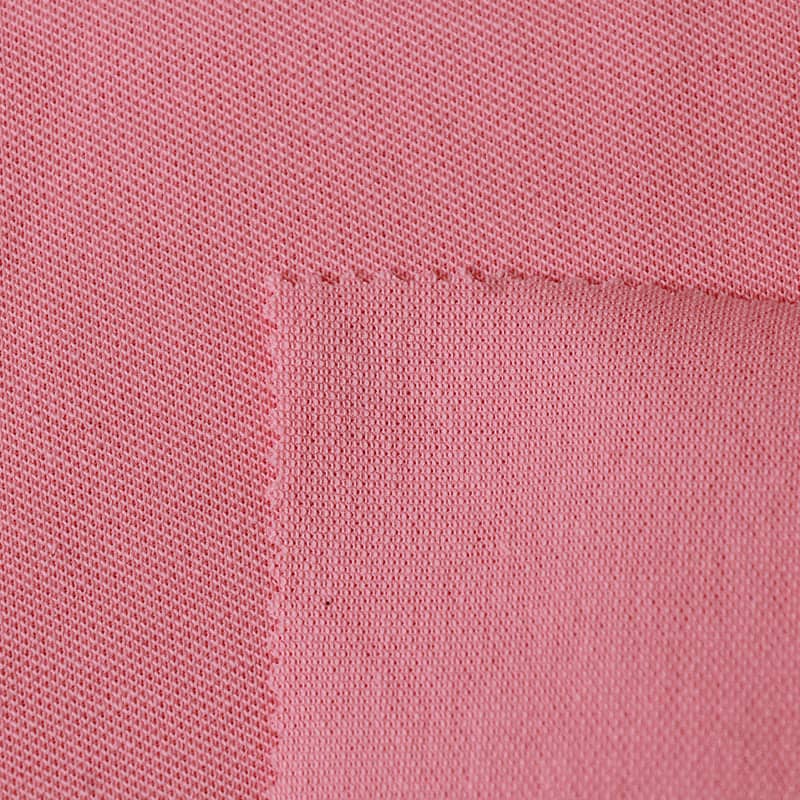
Sorona fabric is a type of polyester but is distinguished by its bio-based content. Traditional polyester is petroleum-based, whereas Sorona contains material derived from renewable plant-based ingredients, making it more sustainable and eco-friendly.
Is Sorona fabric waterproof?
Sorona fabric itself is not inherently waterproof but offers excellent moisture-wicking properties. It can be treated with waterproofing agents to enhance its resistance to water, making it suitable for outdoor and performance wear.
Is Sorona better than cotton?
Sorona has several advantages over cotton; it’s more durable, has intrinsic stain resistance, requires less water and energy to maintain, and offers greater elasticity. However, the choice between Sorona and cotton ultimately depends on the specific needs and preferences regarding fabric characteristics.
Is Sorona filling warm?
Yes, Sorona filling is warm. It is used as an insulation material in jackets and other cold-weather gear, providing warmth while being lightweight and breathable.
Applications of Sorona Fabric in Apparel
Sorona fabric is increasingly becoming a popular choice among fashion designers and apparel manufacturers due to its versatile properties. Here’s how Sorona is being used across various clothing categories:
Activewear
- Performance and Comfort: Sorona is ideal for activewear due to its stretchability, durability, and moisture-wicking properties. It ensures that garments remain comfortable and perform well under physical stress, making it a favorite for yoga pants, running shorts, and sports jerseys.
Casual Wear

- Everyday Comfort and Ease of Care: The softness and easy-care properties of Sorona make it perfect for casual wear. It’s used in items like t-shirts, dresses, and pants, where comfort and durability are key. The fabric’s resistance to stains and ease of maintenance mean that it stays looking fresh with minimal effort.
Outerwear
- Insulation and Durability: For jackets and outerwear, Sorona provides excellent thermal properties and resistance to elements, making it suitable for both light and heavy-duty outerwear. Its ability to retain shape and structure over time also ensures that outerwear pieces maintain their aesthetic appeal.
Formal Apparel
- Luxury Feel and Aesthetic Appeal: The luxurious feel of Sorona fabrics makes them a great choice for more formal garments like suits and evening dresses. The fabric’s drape and softness contribute to elegant silhouettes that are both comfortable and stylish.
Industry Adoption
Several leading brands have incorporated Sorona into their product lines, recognizing its benefits and appeal to eco-conscious consumers. The use of Sorona spans from global sports brands incorporating it into high-performance gear to fashion labels using it for eco-friendly luxury collections.
Why Brands Choose Sorona
Choosing Sorona allows brands to offer products that are not only environmentally preferable but also superior in terms of performance and comfort. This aligns with the increasing consumer demand for sustainable products without compromising on quality or style.
How much does Sorona fabric cost?
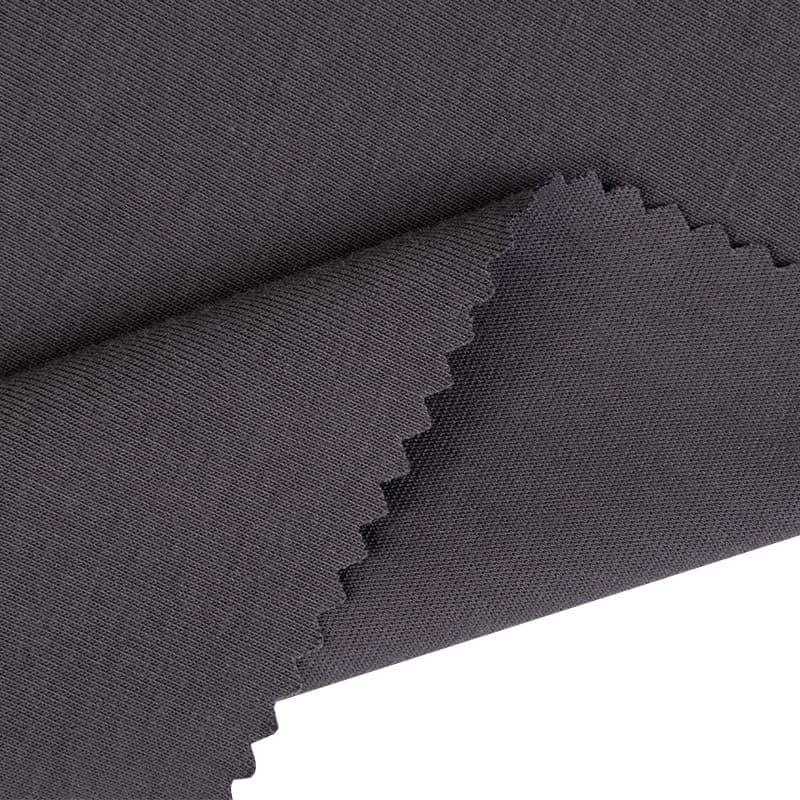
The cost of Sorona fabric can vary depending on several factors such as the type of product, the specific blend of the fabric, and the quantity ordered. For example, 210GSM of 65% cotton 35% Sorona jersey t-shirt fabric is $3.50 per meter at Valtin Apparel.
For detailed pricing, manufacturers or suppliers offer specific quotations based on the product specifications and order size, typically requiring minimum order quantities that could affect the overall cost.
For more information on sourcing and pricing, you can visit Sorona’s official page.
Conclusion
For forward-thinking brands and manufacturers, incorporating Sorona into your product lines isn’t just a business decision—it’s a commitment to contributing positively to the planet while meeting the evolving demands of consumers. By choosing Sorona, you ensure your offerings are not only innovative and high-performing but also aligned with the global movement towards sustainability.
At Valtin Apparel, we understand the importance of staying ahead in the competitive and ever-changing fashion industry. We are dedicated to providing our clients with the latest and most sustainable fabric options, including Sorona. Our expertise and resources are geared towards assisting you in navigating the complexities of sustainable manufacturing, ensuring that your products are both eco-friendly and commercially successful.


